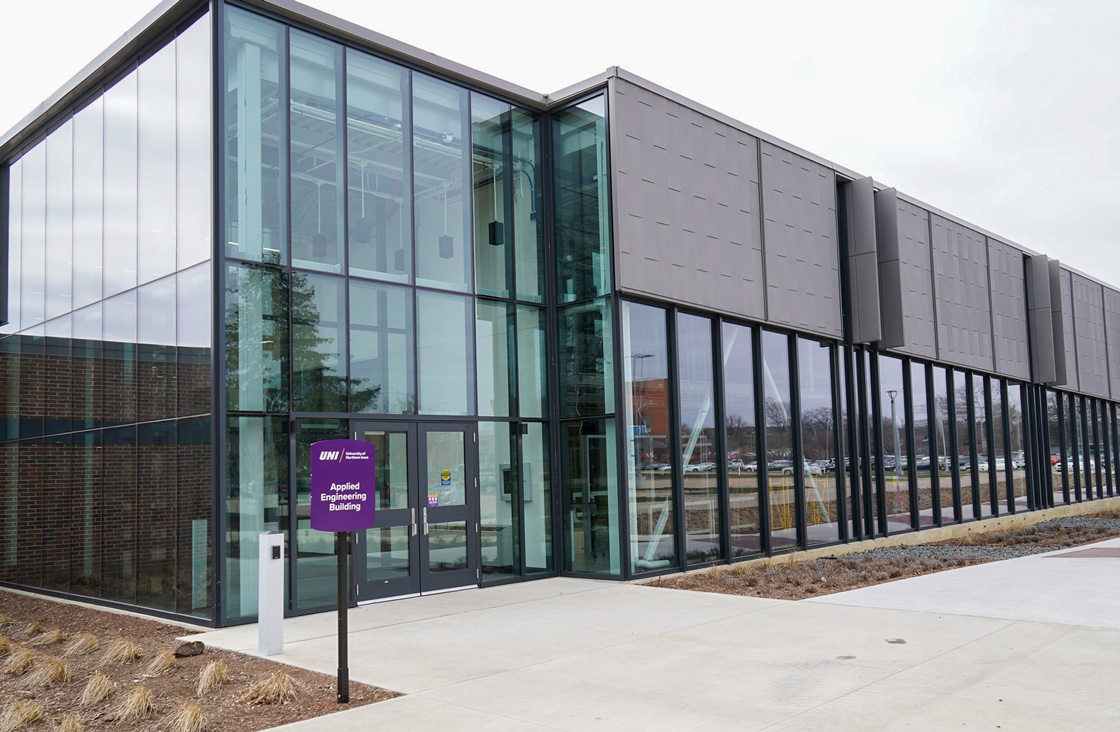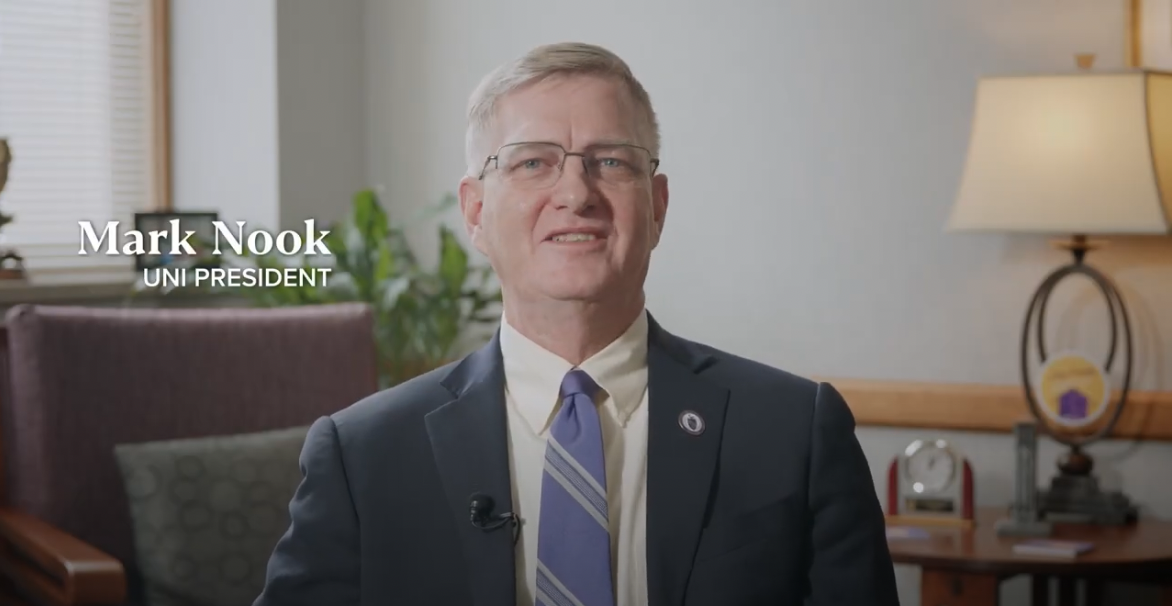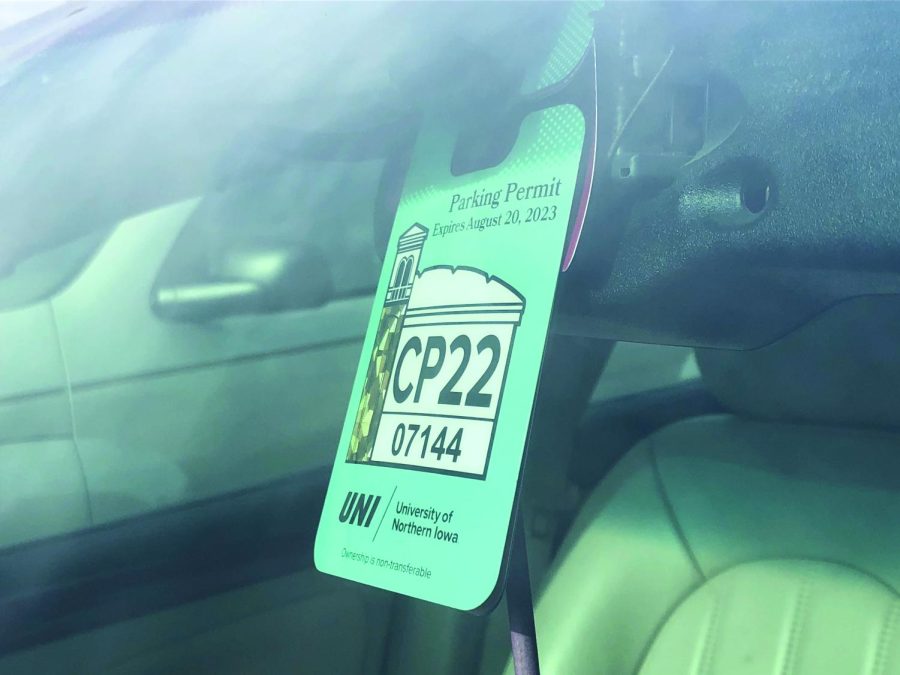The University of Northern Iowa faculty passed a motion of no confidence in UNI President Benjamin Allen and Provost Gloria Gibson in a special meeting Friday afternoon in the Gallagher-Bluedorn Performing Arts Center.
The motion against Allen passed by a vote of 197-53 with four abstentions, and the motion against Gibson passed by a vote of 172-69 with nine abstentions and one spoiled ballot.
The largely symbolic resolutions come in the wake of the administration’s recent recommendation to close Price Lab and its announcement that it will cut academic programs, two decisions the faculty feel they weren’t properly consulted on.
“I’m sitting in this room full of doctors, and I’m wondering why all of these intelligent people weren’t consulted for ideas to fix this problem, ideas that wouldn’t compromise our mission, our beliefs,” said Andrew Stollenwerk, a physics professor.
The meeting was called by UNI Faculty Chair James Jurgenson in response to a petition with 30 signatures that called for a meeting by the end of the week to discuss recent and coming budget cuts being carried out “with no faculty input.”
The UNI faculty senate met with the administration last Monday to look at a preliminary list of programs in review for termination, a list that reportedly includes philosophy, religion and physics, more than a month after faculty members received an email from Allen saying tenured faculty will be affected by program cuts.
The university’s preliminary list included all undergraduate majors that have graduated an average of fewer than 10 students over the last five academic years.
“These are not good choices that are being made, and by the criterion they are using, they’re certainly not going to be able to make good choices,” said John Deisz, a physics professor.
Al Hayes, a professor in political science, called the faculty to be careful not to weaken its reputation and ability to do hard advocacy and negotiation with the state.
“I don’t think the enemies are in Seerley; I think the enemies are in Des Moines,” he said. “… We should not spend all of our time snarling and biting at each other; we should try to figure out how to present a united front to the people that are really undercutting higher education in our state and all over the country.”
In order to pass the resolutions, which were introduced at the meeting, the faculty overturned bylaws requiring legislation not on the meeting’s docket be tabled until the next faculty meeting. A suggestion to adjourn the meeting and reconvene immediately was withdrawn, and a motion from professor Francis Degnin to adjourn and vote next week failed.
“I’d hate to see us abandon our own process at a time when we’re complaining about the processes working for the university,” Jeffrey Funderburk, chair of the faculty senate, said. “We represent roughly half the voting faculty in this room; the other half has not seen what we’re talking about doing, and it does have a significant impact.”
Funderburk said the senate had very good consultation last week, though it came very late, and didn’t want to see the vote of no confidence derail those talks.
Betty DeBerg, a faculty senator, said the “dumping” of the list of programs in front of the faculty senate was “for show” and that she doesn’t believe there will be much serious consultation.
“This administration has treated the faculty senate with utter contempt, and I don’t think it’s going to do anything different in the near future except for window-dressing,” she said.
Martha Reineke, a professor in philosophy and world religions, felt the administration has no understanding of how to realize the university’s goal of being a strong undergraduate university founded in the liberal arts.
“The difference between liberal arts courses at a community college and at a leading undergraduate public university is this: students at the latter encounter real physicists, real philosophers and real scholars of religion,” she said.
Reineke said cutting liberal arts majors could turn away passionate scholars from the university and that instructors’ passion, knowledge and skills will “shrivel” without the support a major offers. Without these experts, she argued, UNI’s liberal arts education will be no better than that of a community college.
“You can’t cut the roots off a tree and have a tree left,” she said.
Cathy DeSoto, a psychology professor and chair of United Faculty, felt every faculty member should read the university’s Comprehensive Annual Financial Report, which she said shows the university’s resources allow it to meet its financial obligations.
“Every year, there is more income coming in than going out. Every year it’s right here,” she said. “… It’s like a Jedi mind trick: pay no attention to the black and white numbers in the book; there’s a financial crisis, so you have to cut your salaries, tuition has to be raised.”
Leslie Wilson, a professor in the College of Business Administration, had a different interpretation of UNI’s financial situation.
“We must balance our budget each and every year. So each and every year, that final budget will show that somehow, we’re balanced. That does not mean that, looking into the future, we are in very good standing,” she said.
The annual reports show that the university’s state appropriations have been cut by roughly $23.5 million over the past three years. To make up those cuts, tuition has increased by 16 percent in that time, and the university has cut several positions, reduced support for auxiliaries, merged two colleges, instated early retirement for many professors and utilized one-time federal funds.
“Going into next year, we are $4 million short, and that’s without any potential cuts coming from the legislature,” Wilson said. “That’s a very different picture than what you might see or might be thinking of. Last year, our final budget shows that we were $2.2 million short of income over expenses that had to be covered.”12







